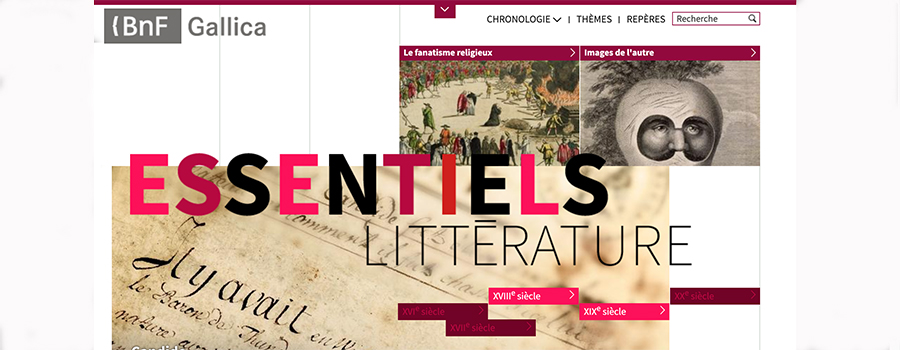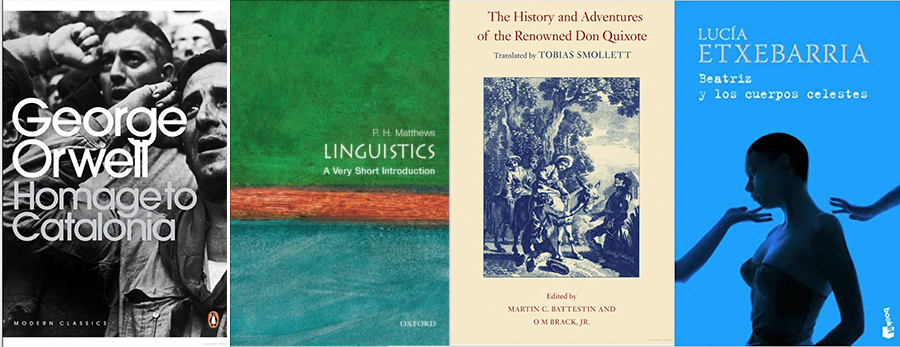Before beginning your undergraduate Modern Languages degree programme here at Birmingham you may be wondering if there is anything you could be doing to prepare.
You will be given a reading list when you arrive and the first year modules will provide a thorough introduction to your studies, but if you do find that you have some spare time beforehand, here are some recommendations from some of our lecturers and current students to really get you thinking and to further add to the excited anticipation of your future studies.
The French language is prized for its elegance. But it is also a heavily regulated language, with the rules established by the centuries-old official body, the Académie française. The Académie also publishes its own dictionary. Each year the Académie updates its list of new words allowed into the language – great for expanding your vocab knowledge! Some of the words are imports or hybrids, such as photomontage or parka, some have been triggered by global conversations about fake news which now give us the words désinformation/désinformer. Some are derived from France’s own cultural heritage, such as misérabilisme which is inspired by Victor Hugo’s famous novel from 1862, Les Misérables. The online platform of the Bibliothèque nationale de France offers a fantastic online dossier about this major work of French literature – with illustrated versions, online editions, and manuscripts – which you can explore through their Gallica pages.

Hugo was not just a famous novelist, but also an important poet. French poetry is some of the most celebrated globally – by classic nineteenth-century authors such as Hugo, Baudelaire, Verlaine, or Rimbaud. The Poésie française website has dossiers on each of the major poets, with free online access to thousands of poems, such as ‘Demain, dès l’aube...’ (Hugo), ‘Harmonie du soir’ (Baudelaire), ‘Chanson d’automne’ (Verlaine) or ‘Le Bateau ivre (Rimbaud). You can also filter by theme, such as these poems on friendship. A lot of French poetry has also been set to music by globally-renowned musicians. You can find out all about nearly 2,000 of settings of Baudelaire’s poetry via the Baudelaire Song Project compiled by a team of academics here at the University of Birmingham. One of my favourite tracks is by Belgian band Exsangue who produced a gorgeous music video for their folk-chanson version of A une malabaraise in 2016.
French poetry isn’t just about the old classics. One of the most important voices today is Grand Corps Malade (stage name of Fabien Marsaud) who is active in the French slam scene (slam = monter sur scène pour présenter des performances de poésie). Grand Corps Malade’s performances sometimes have musical accompaniment – the official YouTube channel showcases his different takes on contemporary French life, such as Dimanche Soir from 2018. Grand Corps Malade has also recently entered the world of French cinema, with a 2019 comedy drama La Vie scolaire (School Life) inspired by his own school days in the Paris suburb of Saint-Denis.
Our student Freya recommends: (Spanish / Hispanic studies)

Homage to Catalonia, George Orwell. I read this autobiographical war novel in the summer before university and found it an insightful introduction to the Spanish Civil War from a British perspective. It highlights the role played by international militia brigades in the Civil War, which really underscores the Civil War's effect not only on Spain, but on Europe more widely, and its role as a formative experience for foreign writers in Spain, such as Orwell. If you enjoy this, you might also like: "As I Walked Out One Midsummer Morning" (Laurie Lee) and "Soldados de Salamina" (Javier Cercas).
Linguistics, A Very Short Introduction, Peter Matthews. I think the Oxford "Very Short Introductions" series are a great starting point on a variety of academic subjects, and I found this book useful to lay the groundwork before beginning a module on Spanish linguistics in second year. It's a short read and even includes an introduction to the International Phonetic Alphabet, something I found useful during my time spent teaching English in Spain during my year abroad. Other topics in the series include: Latin American Literature, the Spanish Civil War and Fascism.
Don Quijote, Miguel Cervantes. You've almost certainly heard of this novel, as it's perhaps the most famous Spanish-language book ever written. I also studied this in second year and found it fascinating to discover the significant role that this masterpiece played in shaping the literary world. Written in 1615, Cervantes' use of metafiction in this novel was really ahead of its time. It explores themes such as reality versus fantasy, love and class, and parodies romantic and chivalric fiction in a way that still makes modern audiences laugh. It's long and uses antiquated Spanish, but the parallel English & Spanish edition is a great read, and it means you definitely won't be bored this summer. If you enjoy this, you might also like: "Amadís de Gaula" (Garci Rodríguez de Montalvo) & "Cien años de soledad" (Gabriel García Márquez).
Beatriz y los cuerpos celestes, Lucía Extebarria. I'm currently analysing this novel as part of my final year Independent Study Module dissertation on LGBT oppression during the Franco dictatorship, and Extebarria's works have also featured as part of modules on gender and sexuality in the Hispanic Studies Department. I think it might be the most challenging read on this list, but it offers a really interesting exploration of Spanish Millenial culture, consumerism, sexuality and postmodern identities.
Volver, Pedro Almodóvar. Some of you may have studied this famous Spanish film already at college or sixth form, I know I did. I would definitely recommend watching (or re-watching) this classic, by Spain's most famous director. I have studied a variety of his films during my time at Birmingham University and they're a goldmine of opportunity for analysis of Spanish social and cultural issues including gender, class, "machismo". Have a watch and consider how he makes clever use of colour, perspective and comedic timing to emphasise the themes explored. If you enjoy this, you might also enjoy some of his other works: "Todo sobre mi madre" and "Julieta".
Jade’s recommendations for University of Birmingham Modern Languages applicants
Modern Languages student Jade offers some recommendations for prospective students to help them prepare for their studies.
Try watching some lectures online
Listening to, digesting and following up on lecture material will be – for many – a new skill when they come to university. If you’ve never heard a lecture before there are lots available online where you can get used to this type of teaching. iTunes U is a fantastic resource where you can find free educational content from universities all around the world. We also have content from some of our own academics online, so their faces and voices can become familiar to you before you arrive!
Listen to these somewhere comfortable where there won’t be too many other distractions. Let the information wash over you at first: there’s no need to jot everything down. Instead, try to identify any major or particularly important points. See if you can follow the academic’s line of thinking. If there’s anything you don’t understand, write down your questions, and follow these up afterwards. Like any other skill, this is something that you will improve at with time. The more lectures you watch or listen to, the better at this you will get!
General / cross language resources
- Fluent Forever app (paid but with 14 day trial) - pronunciation focus. Beginner language focus
- All language resources - reviews of general language online programmes. Particularly good for kick-starting beginner languages
Resources by language area
Chinese
French
- Virtual visit to the Orangerie Museum in Paris, which houses Impressionist works including Monet’s Nymphéas (Waterlilies).
- French (and International) Film: keep an eye out for free subscription offers (e.g. 30 days for free) with Mubi. A variety of classic movies are available at any one time. Do note that, by definition, Mubi may select films that are challenging in different ways and that some viewers may find problematic.
Italian
Spanish
Afro-Hispanic identities and Linguistic diversity:
- The Black Grandma in the Closet
- I Am Joaquin, part 1 and part 2
- “Christians, Jews and Muslims: Art and Identity in Medieval Spain” Three lectures by Dr. Jerrilyn Dodds at the Metropolitan Museum in New York on the interactions of Christianity, Islam and Judaism and the making of Spain.
German
Resource lists for Year 1 German. Enter German Core I and German Core II to access the main resource lists. No need to buy any books yet however. The main textbooks we use are Mark Allinson’s Germany and Austria since 1814 and Martin Durrell’s Essential German Grammar (2nd edition, 2015), but these are both available as e-books if you prefer not to buy your own copy.
We don’t expect you to do any specific advance work, but you could consider doing some/all of the following:
Russian
- Links to a range of podcasts, films, television shows, lectures, and other resources relating to Soviet and contemporary Russian history, politics, and culture
- Short videos that give a lot of basic vocabulary in authentic situations. All videos come with subtitles. Beginners may enjoy getting used to the sound of Russian, discovering more about Russian life, and perhaps even learning some basic phrases:
- Beginners Russian courses online - for students who would like to begin learning the alphabet and basic phrases:
- Students planning on taking Russian Unwrapped may like to read (all available in translation):
- Notes from Underground, Fyodor Dostoevsky
- “Ward No. 6” by Anton Chekhov (and other Chekhov short stories)
- Homo Zapiens, Viktor Pelevin
- Many Russian novels can be found online at Project Gutenberg (try Pushkin, Turgenev, Tolstoy, Dostoevsky, Chekhov, Bunin). You can also find Russian folk tales. This is one of the topics in Core I (Beginners and Advanced first-year Russian).
- Lots of information on musicians, TV shows, movies, and more from the late Soviet era to the current day. Most have YouTube clips provided, along with descriptions and, where possible, lyrics in the original language.